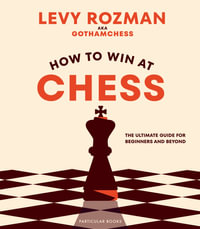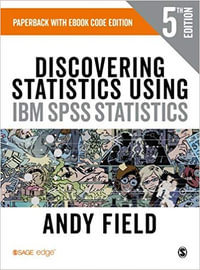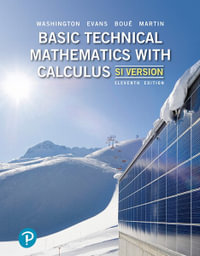
Attractors for Equations of Mathematical Physics
By: Vladimir V. Chepyzhov, Mark I. Vishik
Hardcover | 1 November 2001
At a Glance
363 Pages
26.04 x 18.42 x 2.54
Hardcover
$216.95
or 4 interest-free payments of $54.24 with
orAims to ship in 15 to 25 business days
When will this arrive by?
Enter delivery postcode to estimate
| Introduction | p. 1 |
| Attractors of Autonomous Equations | p. 15 |
| Attractors of Autonomous Ordinary Differential Equations | p. 17 |
| Semigroups and attractors | p. 17 |
| Examples of ordinary differential equations and their attractors | p. 21 |
| Attractors of Autonomous Partial Differential Equations | p. 27 |
| Function spaces and embedding theorems | p. 28 |
| Operator semigroups. Basic notions | p. 35 |
| Attractors of semigroups | p. 37 |
| Reaction-diffusion systems | p. 38 |
| 2D Navier-Stokes system | p. 46 |
| Hyperbolic equation with dissipation | p. 49 |
| Dimension of Attractors | p. 51 |
| Fractal and Hausdorff dimension | p. 51 |
| Dimension of invariant sets | p. 53 |
| Optimization of the bound for the fractal dimension | p. 59 |
| Application to semigroups | p. 62 |
| Applications to evolution equations | p. 65 |
| Lower bounds for the dimension of attractors | p. 73 |
| Attractors of Non-autonomous Equations | p. 77 |
| Processes and Attractors | p. 79 |
| Symbols of non-autonomous equations | p. 80 |
| Cauchy problem and processes | p. 82 |
| Uniform attractors | p. 83 |
| Haraux's example | p. 85 |
| The reduction to a semigroup | p. 86 |
| On uniform (w.r.t. [tau] [set membership] R) attractors | p. 92 |
| Translation Compact Functions | p. 95 |
| Almost periodic functions | p. 95 |
| Translation compact functions in C(R; M) | p. 97 |
| Translation compact functions in L[superscript loc subscript p] (R; [varepsilon]) | p. 101 |
| Translation compact functions in L[superscript loc subscript p, w] (R; [varepsilon]) | p. 104 |
| Other translation compact functions | p. 106 |
| Attractors of Non-autonomous Partial Differential Equations | p. 107 |
| 2D Navier-Stokes system | p. 107 |
| Non-autonomous reaction-diffusion systems | p. 114 |
| Non-autonomous Ginzburg-Landau equation and others | p. 118 |
| Non-autonomous damped hyperbolic equations | p. 119 |
| Semiprocesses and Attractors | p. 129 |
| Families of semiprocesses and their attractors | p. 129 |
| On the reduction to the semigroup | p. 132 |
| Non-autonomous equations with tr.c. on R[subscript +] symbols | p. 135 |
| Prolongations of semiprocesses to processes | p. 137 |
| Asymptotically almost periodic functions | p. 140 |
| Non-autonomous equations with a.a.p. symbols | p. 143 |
| Cascade systems and their attractors | p. 146 |
| Kernels of Processes | p. 149 |
| Properties of kernels | p. 149 |
| On the dimension of connected sets | p. 153 |
| Dimension estimates for kernel sections | p. 155 |
| Applications to non-autonomous equations | p. 157 |
| Kolmogorov [varepsilon]-Entropy of Attractors | p. 163 |
| Estimates of the [varepsilon]-entropy | p. 163 |
| Fractal dimension of attractors | p. 173 |
| Functional dimension and metric order | p. 176 |
| Applications to evolution equations | p. 177 |
| [eta]-entropy and metric order of [Sigma] | p. 188 |
| [varepsilon]-entropy in the extended phase space | p. 192 |
| Trajectory Attractors | p. 197 |
| Trajectory Attractors of Autonomous Ordinary Differential Equations | p. 199 |
| Preliminary propositions | p. 200 |
| Construction of the trajectory attractor | p. 203 |
| Examples of equations | p. 205 |
| Dependence on a parameter | p. 207 |
| Attractors in Hausdorff Spaces | p. 211 |
| Some topological preliminaries | p. 211 |
| Semigroups in topological spaces and attractors | p. 214 |
| Applications to (M, [xi])-attractors | p. 218 |
| Trajectory Attractors of Autonomous Equations | p. 219 |
| Trajectory spaces of evolution equations | p. 219 |
| Existence of trajectory attractors | p. 222 |
| Trajectory and global attractors | p. 224 |
| Trajectory Attractors of Autonomous Partial Differential Equations | p. 229 |
| Autonomous Navier-Stokes systems | p. 229 |
| Autonomous hyperbolic equations | p. 242 |
| Hyperbolic equations depending on a parameter | p. 251 |
| Trajectory Attractors of Non-autonomous Equations | p. 259 |
| Non-autonomous equations, their symbols, and trajectory spaces | p. 260 |
| Existence of uniform trajectory attractors | p. 262 |
| Equations with symbols on the semiaxis | p. 266 |
| Trajectory Attractors of Non-autonomous Partial Differential Equations | p. 269 |
| Non-autonomous Navier-Stokes systems | p. 269 |
| Trajectory attractor for 2D Navier-Stokes system | p. 278 |
| Reaction-diffusion systems | p. 282 |
| Non-autonomous hyperbolic equations | p. 292 |
| Approximation of Trajectory Attractors | p. 299 |
| Trajectory attractors of non-autonomous ordinary differential equations | p. 299 |
| Trajectory attractors of Galerkin systems | p. 302 |
| Convergence of trajectory attractors of Galerkin systems | p. 303 |
| Perturbation of Trajectory Attractors | p. 305 |
| Trajectory attractors of perturbed equations | p. 305 |
| Dependence of trajectory attractors on a small parameter | p. 307 |
| Averaging of Attractors of Evolution Equations with Rapidly Oscillating Terms | p. 311 |
| Averaging of rapidly oscillating functions | p. 311 |
| Averaging of equations and systems | p. 320 |
| Perturbation with rapidly oscillating terms | p. 341 |
| Proofs of Theorems II.1.4 and II.1.5 | p. 345 |
| Lattices and Coverings | p. 349 |
| Bibliography | p. 353 |
| Index | p. 361 |
| Table of Contents provided by Syndetics. All Rights Reserved. |
ISBN: 9780821829509
ISBN-10: 0821829505
Series: Colloquium Publications
Published: 1st November 2001
Format: Hardcover
Language: English
Number of Pages: 363
Audience: Professional and Scholarly
Publisher: American Mathematical Society
Country of Publication: US
Dimensions (cm): 26.04 x 18.42 x 2.54
Weight (kg): 1.0
Shipping
| Standard Shipping | Express Shipping | |
|---|---|---|
| Metro postcodes: | $9.99 | $14.95 |
| Regional postcodes: | $9.99 | $14.95 |
| Rural postcodes: | $9.99 | $14.95 |
How to return your order
At Booktopia, we offer hassle-free returns in accordance with our returns policy. If you wish to return an item, please get in touch with Booktopia Customer Care.
Additional postage charges may be applicable.
Defective items
If there is a problem with any of the items received for your order then the Booktopia Customer Care team is ready to assist you.
For more info please visit our Help Centre.























